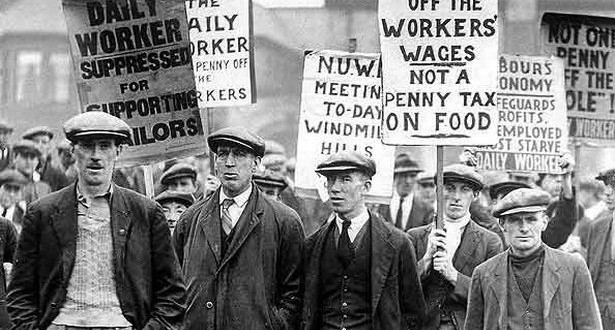In the days following World War One, things were looking dark for the British coal industry. Although there had been a tremendous need for coal during the war, demand fell sharply after it was over. Also, other nations had started to modernize their mining methods, but Britain hadn’t bothered. As a result, its coal mining industry was becoming less competitive. Furthermore, the Dawes Plan to help post-war Germany stabilize its economy allowed Germany to dump large amounts of coal onto the European market for next to nothing, making the British industry even more non-competitive. This all came to a head on May 3, 1926, when the Trade Union Congress called for a general strike.
It started with the coal miners. There were not a lot of legal protections for workers in those days, so there weren’t a lot of options for the coal miners when the coal mine owners started making a lot of extreme, dangerous decisions in an attempt to keep their profit margins high. They slashed workers’ already low wages to truly unlivable levels, demanded that miners work longer hours to get it, and they invested so little in safety that miners were dying of preventable workplace accidents left and right. So they had no other recourse but to strike.
The Trade Union Congress backed the miners’ strike by calling for a general strike. The General Strike, as it came to be known, involved dock workers, printers, railway workers, other transportation industry workers, and workers in the iron and steel industries.
The disruption caused by the strike caused the government to get involved… on the side of the coal mine owners. The Prime Minister called the strike “the road to anarchy and ruin.” Newspapers cast the strike as subversive and an act of revolution and completely ignored the valid issues raised by the miners. The army was sent in to do the jobs of the striking workers. In the end, the strikers were forced to capitulate or starve. The returning workers were given demotions, massive pay cuts, and forced to work longer hours. Generations of workers and their families were condemned to poverty as a result.

